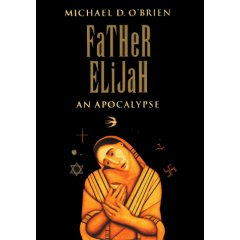 In 19 days time I will be setting out on pilgrimage as chaplain to a group of 170 young people from the diocese of Westminster to the XXIII World Youth Day in Sydney, Australia. During the next couple of weeks I shall be posting some thoughts and reflections on the theme of pilgrimage and journey as I prepare myself to be a pilgrim again
In 19 days time I will be setting out on pilgrimage as chaplain to a group of 170 young people from the diocese of Westminster to the XXIII World Youth Day in Sydney, Australia. During the next couple of weeks I shall be posting some thoughts and reflections on the theme of pilgrimage and journey as I prepare myself to be a pilgrim againI often wonder if we consider human experiences and needs as expressions of our need for God. Hungers need to be satisfied and thirsts need to be quenched. Restlessness, dissatisfaction and itchy feet often invite us to pursue new paths and new ways. In this time and with this group of people, we have been called to be pilgrims. We are on a different road with new people and we need to reflect on this so that we might grow in this journey. The author of Psalm 62 conveys the depth of longing for God that is at the heart of pilgrimage.
O God, you are my God, for you I long for you my soul is thirsting.
My body pines for you like a dry weary land without water.
So I gaze on you in the sanctuary to see your strength and your glory.
Psalm 62.
For centuries men and women have journeyed to distant places known for their holiness, so that they might become closer to God. The condition of a pilgrim was very popular in medieval times. The reasons for undertaking the pilgrimage varied from person to person. For some it was a penitential exercise; absolution from their sin would only happen at the journeys end. Other pilgrimages were undertaken in thanksgiving for a favour obtained or to seek healing from disease. Often the reason for the pilgrimage was just to be in a place associated with Jesus, or where some of the great saints of the Church had ministered. The physical closeness of these icons of holiness nourished the faith of the pilgrim. But being a pilgrim is more than just setting out to reach a significant destination, To be a pilgrim is also an attitude that requires a certain state of mind and heart. For the Christian, a pilgrimage is an intense lived experience of baptism. The pilgrim's journey is a symbol of the desire to follow Christ, to walk the way of holiness. I think that there are four pillars to pilgrimage
• Thirst for God
• Community
• Prayer
• Service
A pilgrimage is an intense living out of the journey we undertake towards intimacy with God, and paradoxically this intimacy has its genesis in community. The pilgrim soon learns the benefit of sharing the journey with others and in this need community is brought to life. A moment of profound encounter with Christ is often realised in the word, embrace or concern of a fellow pilgrim. We could say that growth cannot be achieved in isolation, but in dialogue and relationship.
We are all people of worth. John of the Cross and Teresa of Jesus learned to revel in the fact that God delighted in them, that they were people of immense worth and dignity; simply that they were precious to God. Community or - to put it more generally - Church is a celebration not just of the reality of my own worth but of the worth of the whole of creation. The language of this celebration is prayer, and the action or liturgia of this celebration is service.
Pilgrims today are not so different from the pilgrims of yesteryear. Our ways of travel may be more sophisticated, making the modern pilgrimage easier, but the lessons to be learnt by the pilgrim remain the same. A pilgrimage is not just the action of an individual, but of the Church. The pilgrim seldom undertakes the journey alone, but journeys with others.
The pilgrim has a ministry to others on the way: a ministry of attentiveness to fellow pilgrims, a ministry of prayer for the needs of all. Above all, the pilgrim is called to share the gift of who they are, seeking authentic relationship with Christ and one another. The pilgrim also seeks solitude for those moments of prayer that nourish faith, that affirm and challenge, that quench the thirst we have for Christ but leave us wanting a more intense experience of encounter with him. A pilgrimage is an expression of the joy that comes from knowing Christ, and of the hope that we have in our future with him.
Some attitudes for pilgrimage
• Be aware of others
• Be joyful
• Tell your story
• Listen to others
• At times, be still.
• Pray
• Encourage
To be a pilgrim is to proclaim Christ in our midst. The destination of our pilgrimage is immaterial, for if we desire to follow Christ, Christ is our destination. Let this time awaken within us the desire to be a pilgrim people, journeying together, sharing talents and needs, as we seek the Christ in our midst, he who is the beginning of our journey and its end.

